May 31, 2025 | 06:25 GMT +7
May 31, 2025 | 06:25 GMT +7
Hotline: 0913.378.918
May 31, 2025 | 06:25 GMT +7
Hotline: 0913.378.918
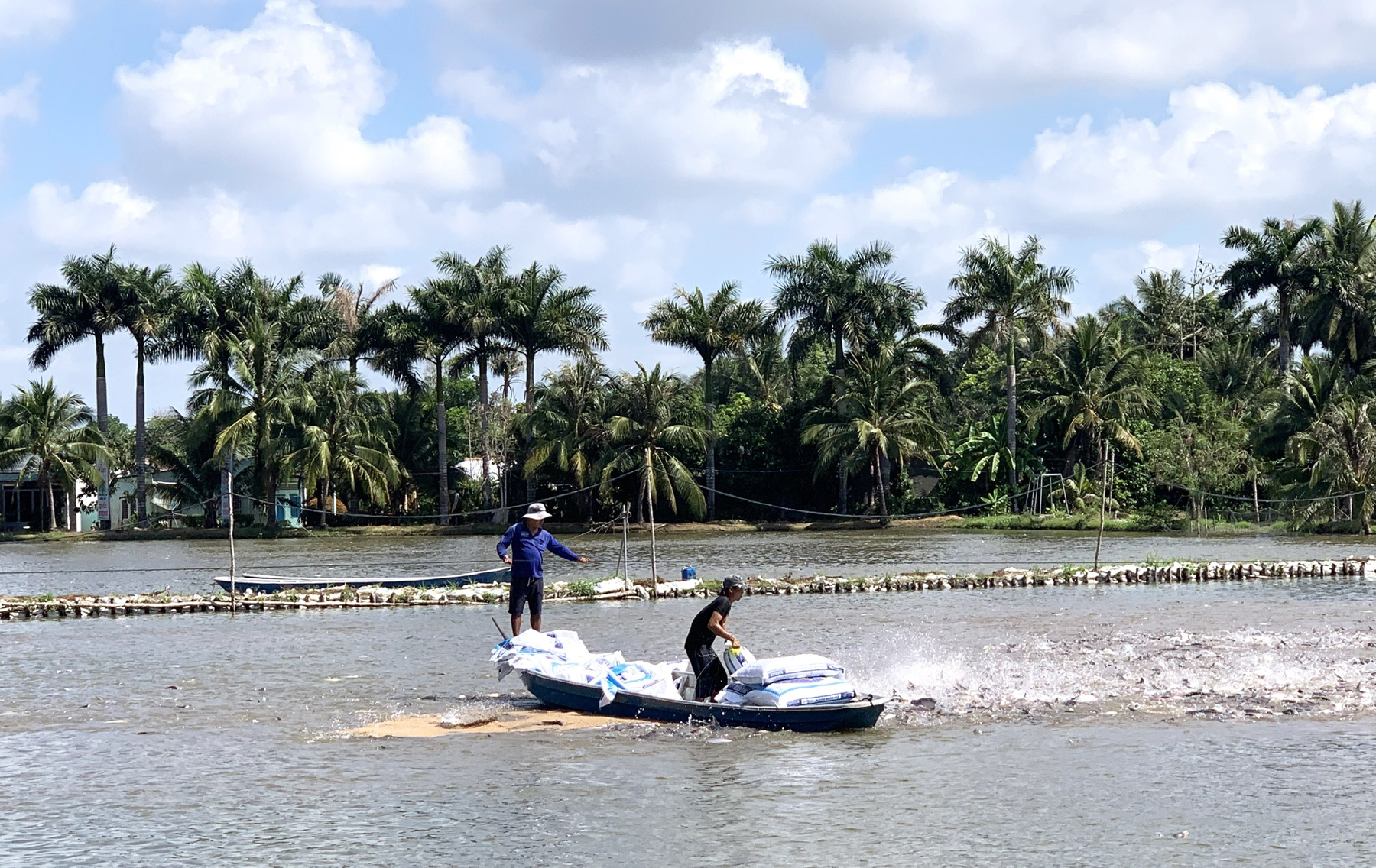
Pangasius farming area for export in Con Son, Can Tho City. Photo: Huu Duc.
In the Mekong Delta, by the end of May 2023, many pangasius farming areas had reduced the seed stocking rate. After the first few months of the year and several fluctuations, the price of commercial pangasius could not maintain a level of over VND 30,000 /kg. Although this price level is considered profitable, it is only enough to encourage the farmers to maintain the fish in the pond and be able to cope with the cost of seeds and the increasing price of aquaculture feeds.
However, currently, factories only procure pangasius at a price of VND 27,000 /kg. At this price level, good fish farmers also suffer a loss of VND 1,000–2,000 /kg. According to Mr. Phuong, a persistent fish farmer for many years in Tan Loc Island, Thot Not district, Can Tho city, in the past two months, some skilled pangasius farmers along the Hau River have gradually rested. Someone has temporarily stopped using the pond and returned the number of rented ponds.
The pangasius industry is facing the reality that although professional fish farmers are qualified, granted farming area codes, and transferred farming techniques that meet export standards, they still face disadvantages. Especially when the input costs increase and the quality of fish seeds is not good enough, causing a high increase in loss rate and thereby putting pressure on the cost of fish farming. Finally, the pangasius farmers can only expect the export market to move positively.
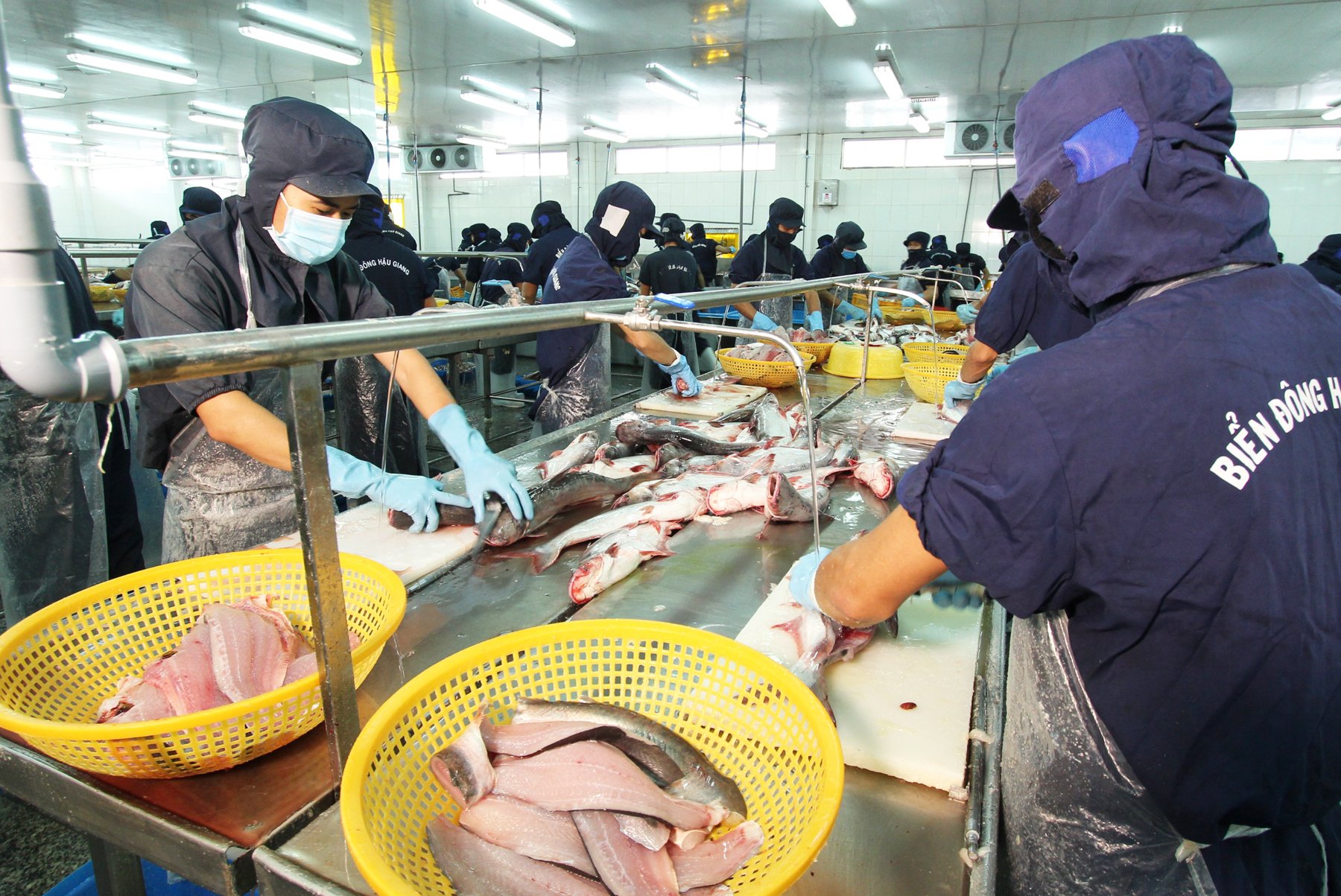
Processing pangasius for export in the Mekong Delta. Photo: Huu Duc-BD.
Looking back at the achievements in 2022, the pangasius production chain has impressive growth in all three aspects: farming area, output, and export value. Total export turnover reached USD$ 2.4 billion, surpassing the 2018 peak of USD$ 2.26 billion. However, after a year of big success, through the first three months of 2023, pangasius exports reached USD$ 422 million, down more than 35% compared to the same period in 2022.
In terms of reasons for that decrease, according to the Vietnam Association of Seafood Exporters and Producers (VASEP), due to the global food inflation situation, the inventory of retailers is still high. Since then, the demand and import prices in some major markets have reduced, leading to a decrease in export sales of pangasius in the first quarter of 2023 compared to the same period last year.
Besides, according to the judgment of the owner of a pangasius processing and export enterprise in Tra Noc Industrial Park, Can Tho city, the quality of Vietnamese pangasius products is good and competitive, so they are accepted by many markets around the world. However, in the context of the world economic recession at the beginning of the year, some major import markets, such as China, the US, and the EU, suffered a decline, leading to an impact on pangasius exports in the Mekong Delta.
To be more specific, the EU and US markets have not recovered. The pangasius fillet export market to China accounts for about 40%, but the import market in this country sometimes fluctuates suddenly with changes in consumption demand. Previously, the Chinese market consumed pangasius butterflies with a small size of 500–600 grams/fish, and in the summer, the provinces of Shanxi and Chengdu like to consume pangasius used to cook hot pot. But in the past two years, the Chinese market has no longer bought small-size pangasius and usually increases imports of pangasius in the last months of the year.
Mr. Phuong and many other people who are good at raising pangasius in the Mekong Delta have experienced many ups and downs and accepted troubles when engaging in the product chain with strong market sensitivity. However, Mr. Phuong is still finding a way to overcome the troubles. While the market is bleak and fish farmers are temporarily inactive in the low-point period, he opened a local processing factory to process fresh food to make OCOP products offered at fairs and in big cities in the country.
Meanwhile, pangasius exporters predict that the economic crisis cycle will pass. While waiting for the market to recover, it is necessary to have solutions for enduring, regulating production, extending the season, and reducing fish stocking. Especially recently, the bank's reduction in interest rates has created changes and removed the lack of capital for businesses to maintain production, welcoming opportunities in the last two quarters of the year.
Translated by Huyen Vu Thu
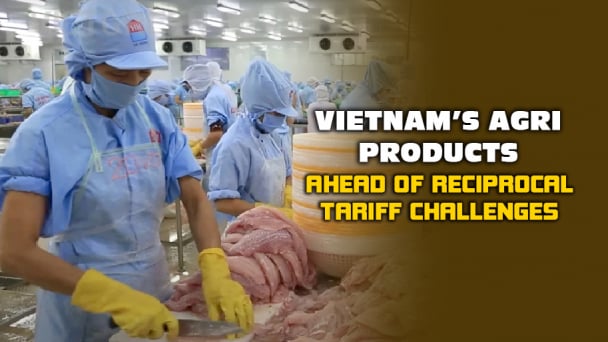
(VAN) Reciprocal tariffs are exerting pressure on U.S. exports, prompting Vietnamese firms to shift their focus to Muslim markets, Thailand, and Brazil.
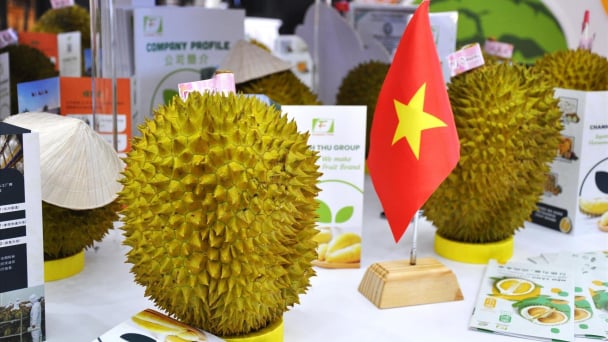
(VAN) A free booth for two years at Xinfadi, Beijing's largest wholesale market, will be allocated to Vietnam's agricultural products.
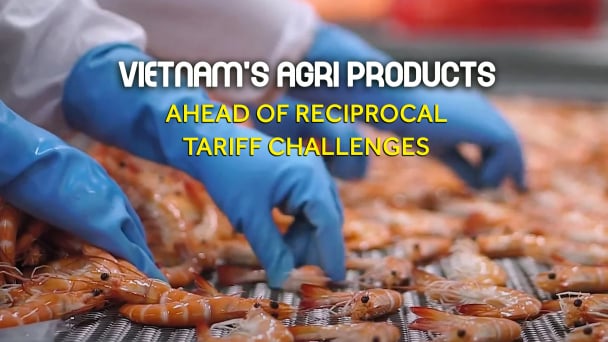
(VAN) Vietnamese shrimp exporters are actively looking for alternative markets and accelerating shipments to the United States in response to the pressure of impending reciprocal tariffs. This is occurring during a temporary tariff suspension.

(VAN) The import-export turnover between Vietnam and Singapore rose amid a trade rebound, with machinery, electrical equipment, and fuels making up the majority of the transaction value.

(VAN) Director General of the General Administration of Customs of China, Ms. Sun Mai Jun, has pledged to implement measures that will ease the import process for Vietnamese agricultural products.

(VAN) Although Vietnam is still increasing its coffee exports, the industry is currently in the process of determining market strategies in response to the U.S. imposition of reciprocal tariffs.

(VAN) With rising demand in Muslim-majority countries, Halal certification is becoming a critical passport for Vietnamese agricultural products seeking sustainable market access and consumer trust in the Middle East and Africa.